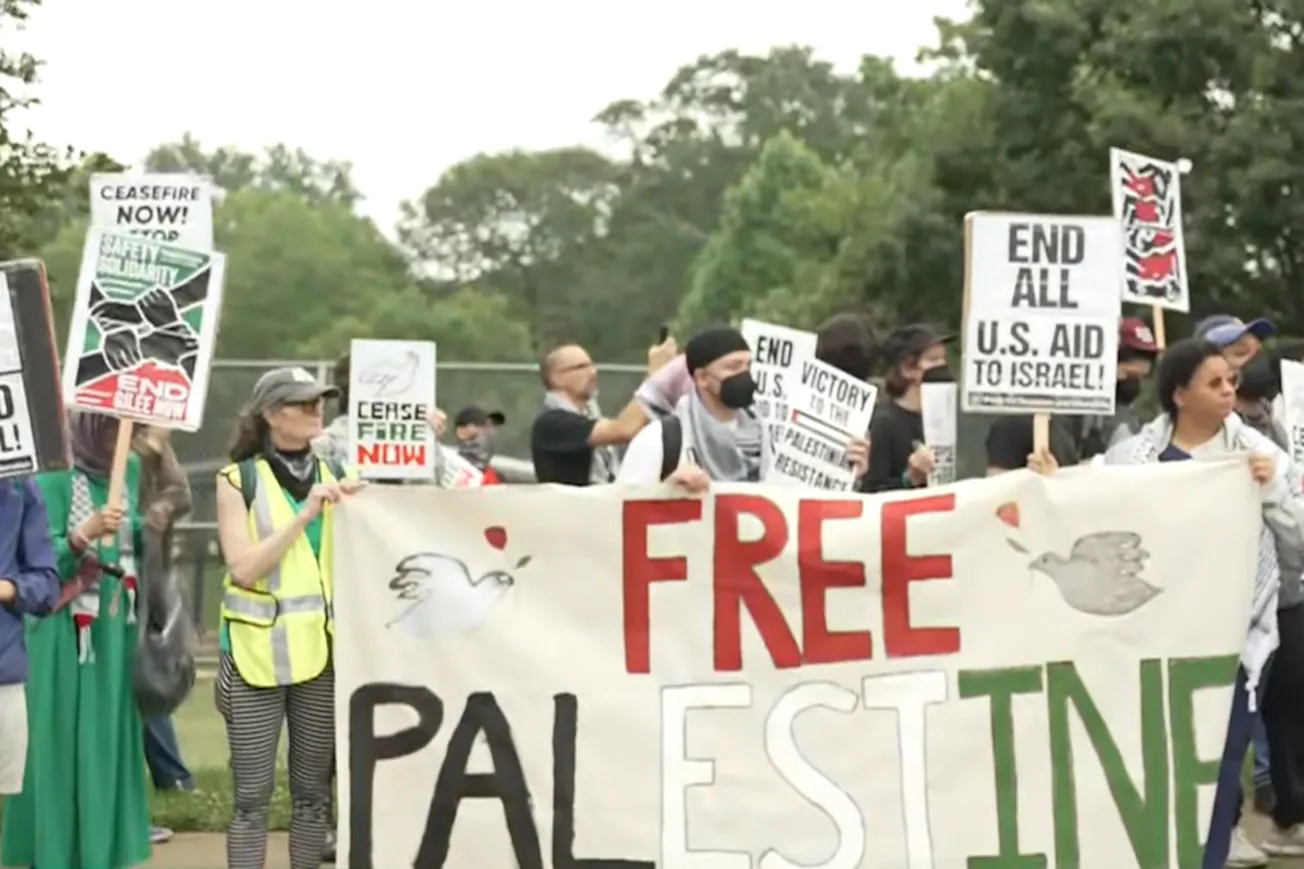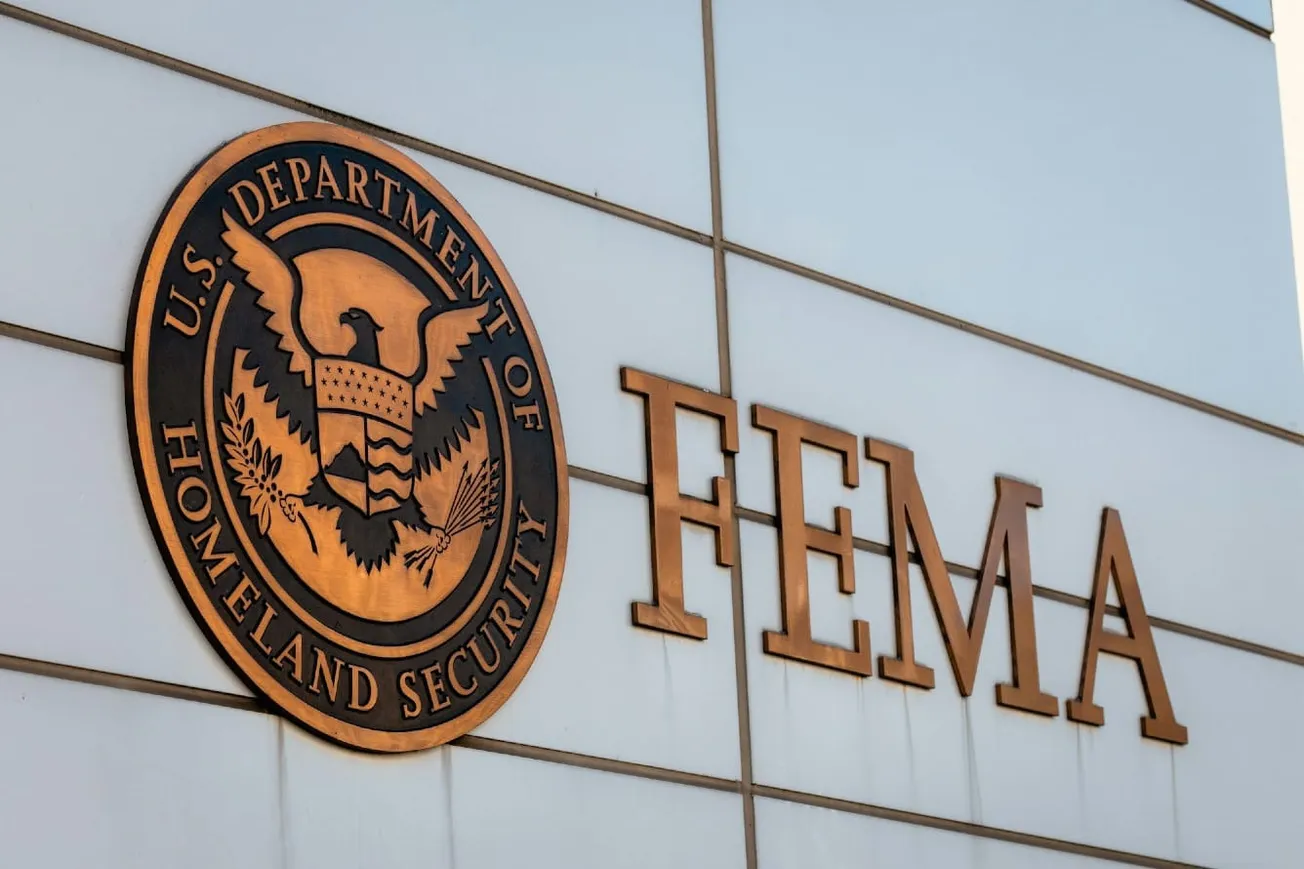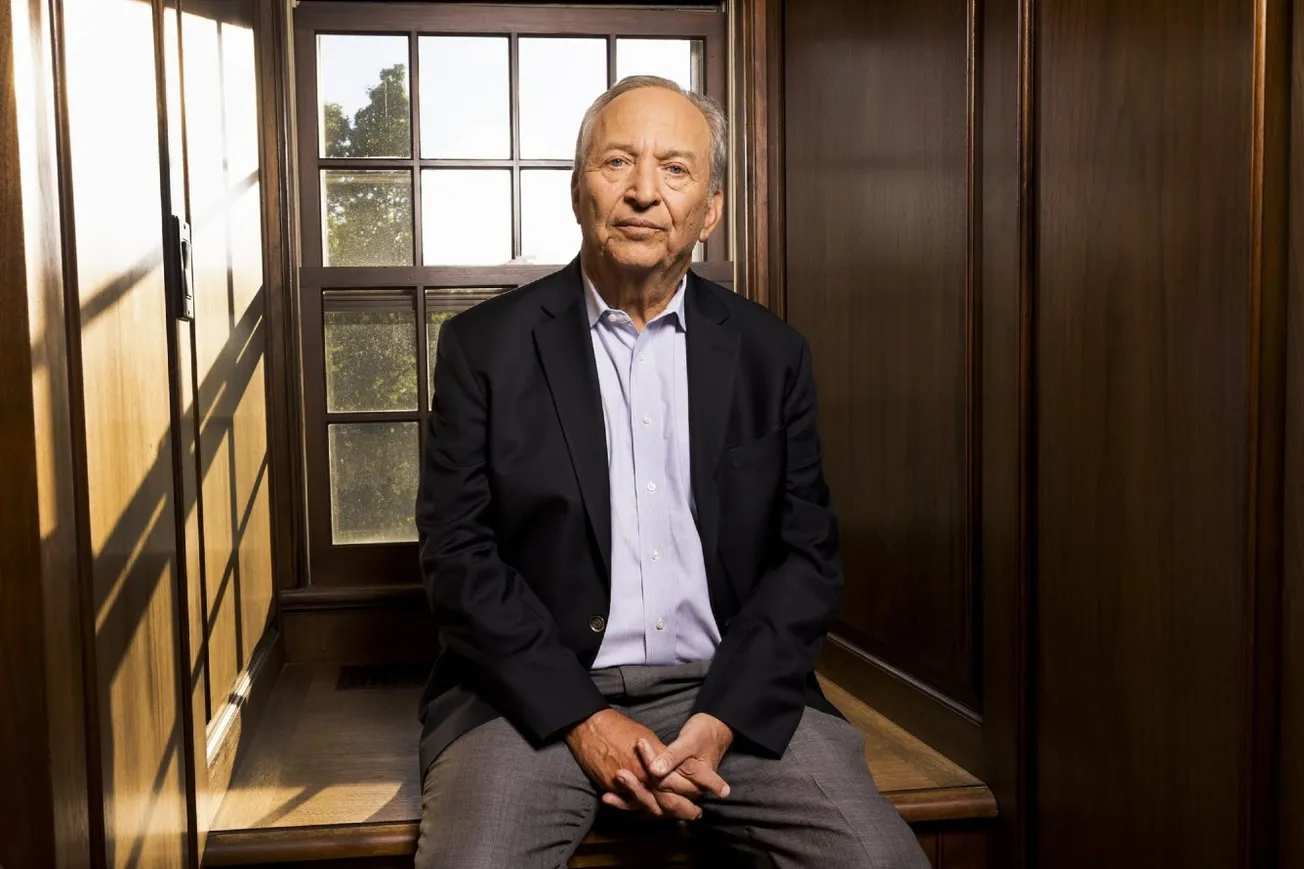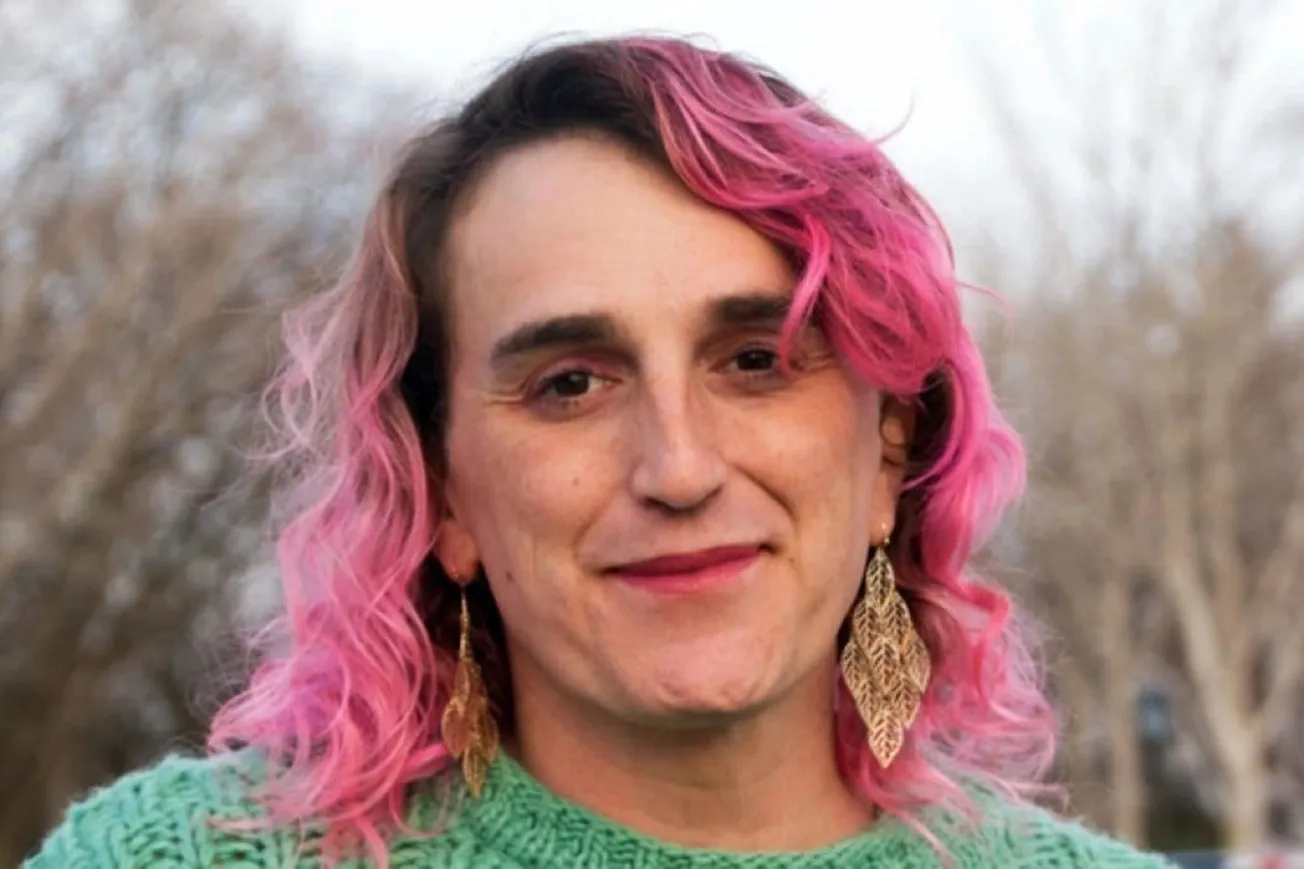American college campuses have experienced mass demonstrations and occupations by students and outsiders in recent months following Israel’s powerful response to the Oct. 7 terrorist attacks by the Islamist group Hamas. Do Americans support this? No, the latest I&I/TIPP Poll shows.
Many average Americans expressed shock at the sudden violent, and well-organized, demonstrations and tent cities that sprang up at universities around the nation, largely in support of Hamas and the destruction of Israel.
A solid majority of Americans are not happy with this, according to May’s national online I&I/TIPP Poll of 1,435 adults, taken May 1-3. Some 60% of all those said they either disapprove “somewhat” (18%) or “strongly” (42%) with the demonstrations.
The poll has a margin of error of +/-2.6 percentage points.
A far smaller total of 24% said they either supported the demonstrations “strongly” (9%) or “somewhat” (15%). Another 16% said they were “not sure.”
But the repudiation of the demonstrations is not across the board, at least when it comes to the demographics of the respondents.
Among Democrats, for instance, 32% said they supported the demonstrations and encampments, while a mere plurality of 48% said they didn’t support the activities.
That compares with 16% of Republicans and 22% of independents who expressed support, with 73% and 61%, respectively, responding that they did not support the at-times violent demonstrations.
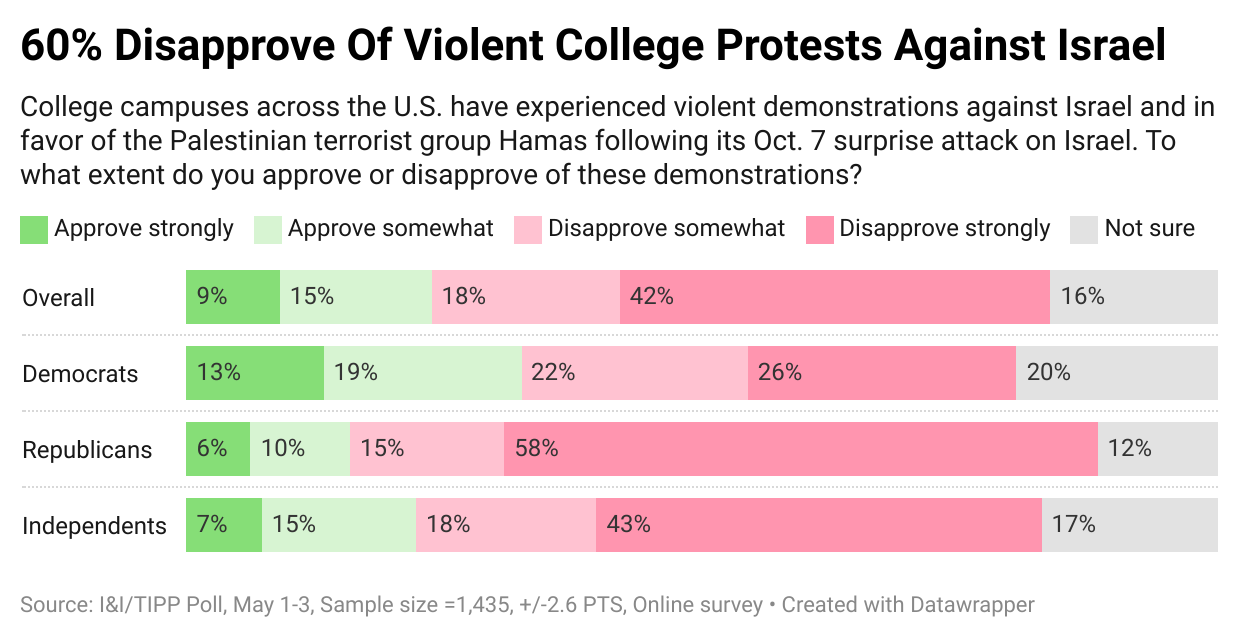
Race or ethnicity is another sharp difference.
Among African-Americans, for instance, 45% approved of the demonstrations, while 37% disapproved. Hispanics had a different response: Just 33% approved, while 51% disapproved.
White Americans? Only 15% approve of the demonstrations, while 69% disapprove.
How about age? Another big gradient among different age groups: For those 18-24, it was 35% approve, 48% disapprove; for those 25-44, nearly identical 34% approve, 44% disapprove. But among those 45-64 years old, the approval plunges to just 19%, with 66% disapproval.
And for those over 65, members of the last generation to experience such violent demonstrations during the Vietnam War, the numbers are lowest of all: Just 10% approve, and 83% disapprove.
Finally, gender was yet another difference. While men (59% disapprove) and women (61% disapprove) were nearly identical, they split when it came to the share saying they approve of the demonstrations: 30% of men said they approve, with 12% unsure, versus 18% of women approving, but 21% unsure.
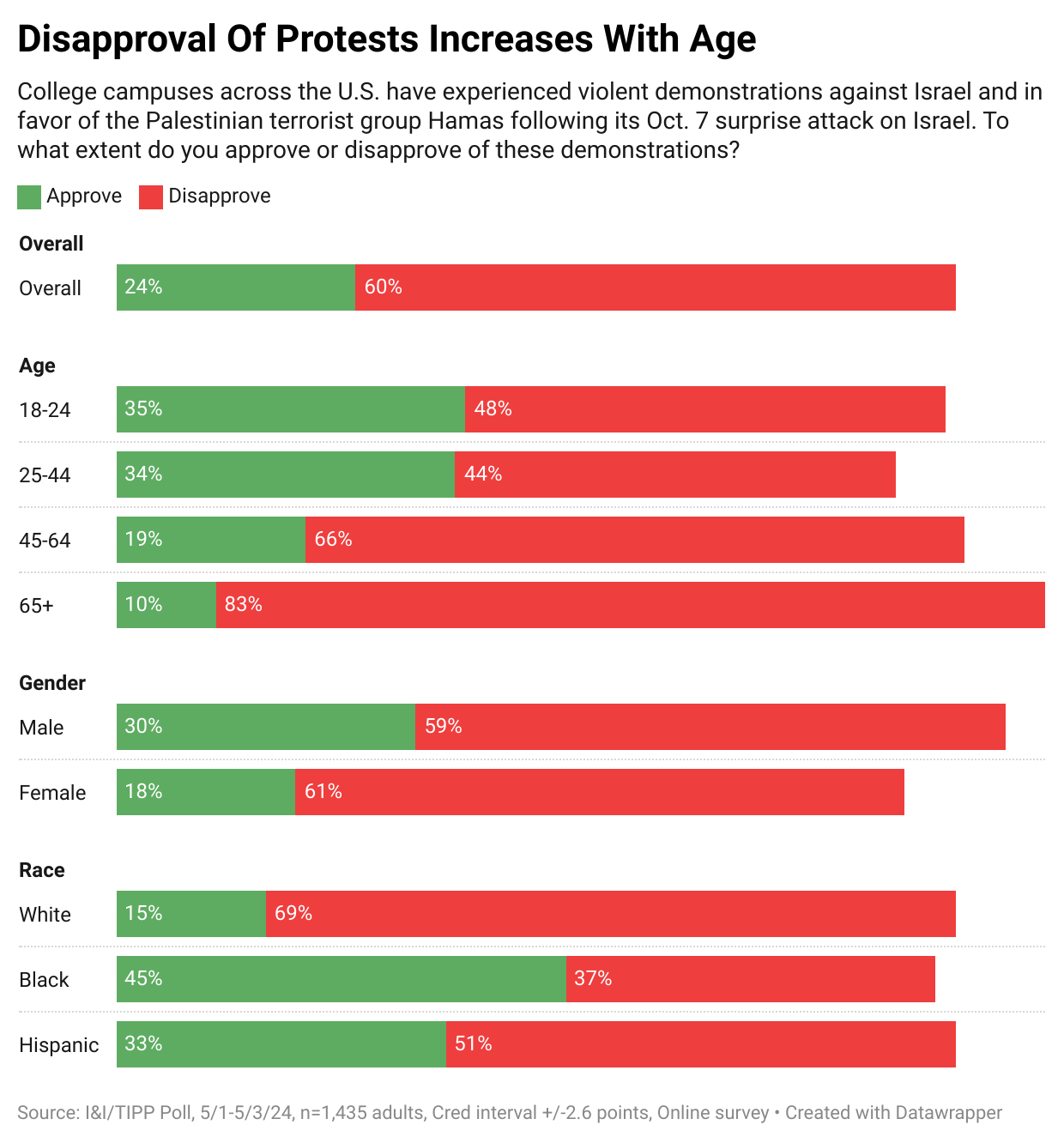
I&I/TIPP asked a follow-on question of those who expressed support for the demonstrations: “If the demonstrations lead to school closures, cancellation of activities such as graduation ceremonies, or forced online learning, would you still approve of them?”
Disruption of learning seems to be a deal breaker, even for those who support the demonstrations. Among them, just 47% said they would still back the demonstrations, while 39% said they wouldn’t and 14% said they were not sure.
So the 24% overall support for the demonstrations is cut roughly in half if they are disruptive. Clearly, Americans are fed up with it all.
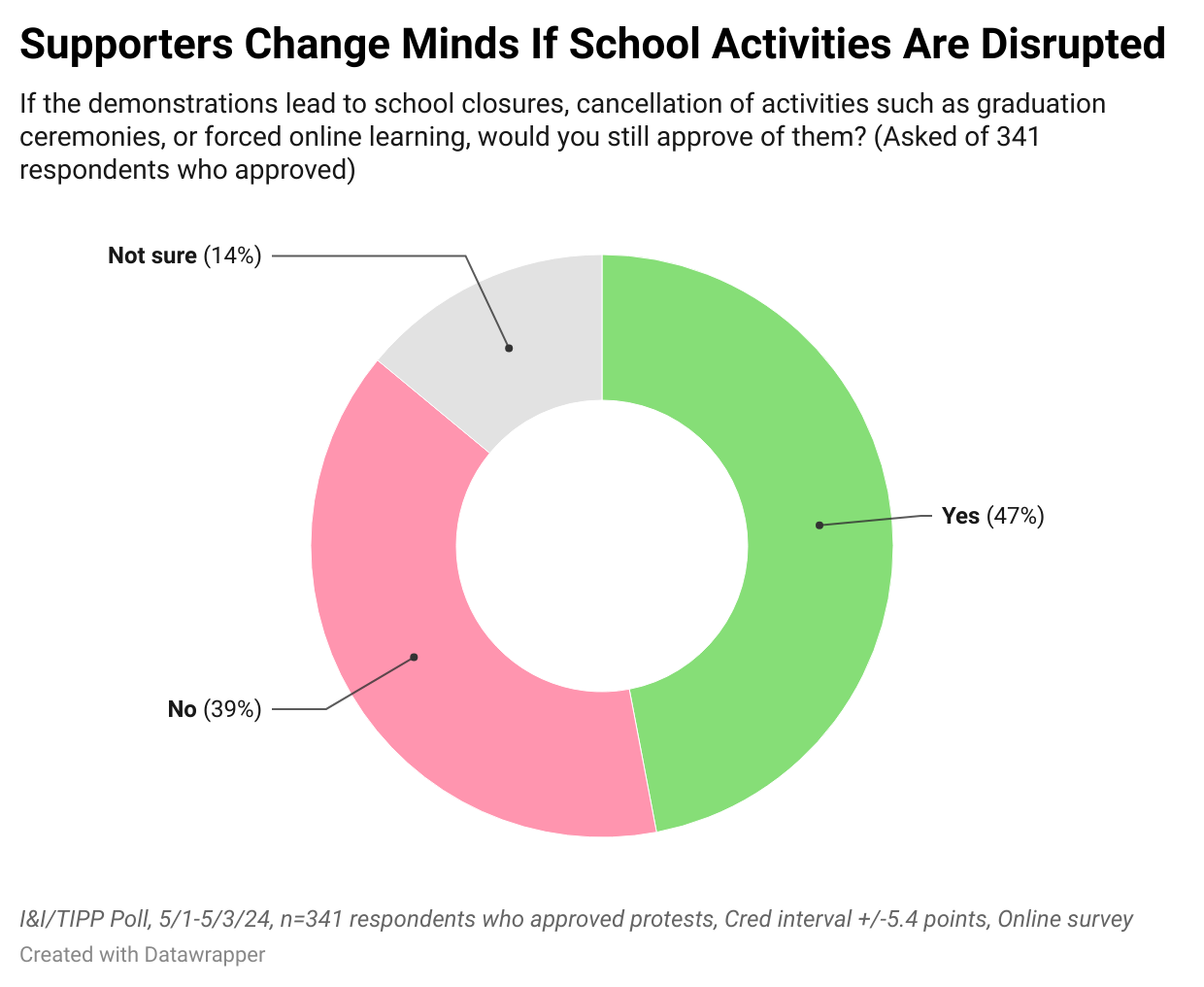
Already, some major universities are experiencing deep regrets for permitting violent demonstrations.
Many angry, formerly generous donors say they will no longer give money to institutions that appear to back the destruction of Israel. Columbia, Harvard, University of Pennsylvania, MIT, USC, UCLA, and hosts of other campuses both large and small across the country, all faced angry and at times violent demonstrations in favor of Hamas and against Israel.
This was no tempest in a teapot. By February, an estimated 1,600 donors had withheld or threatened to withhold donations because of administrators lax attitude toward overtly antisemitic demonstrations. Major schools have lost billions, while even science-oriented MIT has had a $100 million donation rescinded.
Much of this came about after prominent university heads appeared before Congress, making remarks in support of their campuses that even supporters thought were weak.
"Critics say (Penn President Liz) Magill, (Harvard President Claudine) Gay and MIT president Sally Kornbluth failed to convince Congress and the public that they can adequately protect their Jewish students," noted NPR.
"Those concerns largely erupted after the university presidents were asked whether 'calling for the genocide of Jews' would violate their school's code of conduct. Many felt their answers were too legalistic and lacked moral clarity at a time when both antisemitism and anti-Arab and anti-Muslim incidents are on the rise in the country."
That is likely still the case. Why? According to some students interviewed who were affected by the climate of hate on many of the nation's campuses, there's a very clear culprit.
"Jewish students across the United States have expressed concern for their safety and suggested school faculty, as well as Diversity, Equity, and Inclusion (DEI) initiatives, are promoting antisemitic viewpoints that ratchet up the political temperature on campus," according to a Fox News report.
They're not alone in believing so.
"DEI, CRT (critical race theory), and other 'academic acronyms' typically hinge on this idea of people falling into two categories — either the oppressors or the oppressed," writes Tom Knighton in his Tilting At Windmills substack column. "This stems from Marxism itself, where Marx wrote of the bourgeoise and the proletariat as essentially the same thing only in terms of class."
How serious are the powers that be taking this threat to free speech and academic freedom?
A number of campuses across the nation have started to dismantle their DEI departments, which many legal scholars believe are little more than tools for discriminating against white, Jewish and Asian students in both college admissions and jobs. Florida Gov. DeSantis has taken the anti-DEI action a step further, banning DEI in all state schools.
As I&I/TIPP's poll shows, a backlash has formed against this campus antisemitism that has torn entire learning communities apart, and possibly ruined the future job and career prospects for some of the participants.
Americans are fed up with it, and overwhelmingly oppose the campus activism supporting it. It doesn't at all seem unlikely that this is yet another thing that registered voters will have on their minds when they step into the voting booth in November.
That's at least a strong possibility, given that among those financially backing the supposedly spontaneous demonstrations are "philanthropists pushing hard for (Biden's) reelection," including "some of the biggest names in Democratic circles: Soros, Rockefeller and Pritzker," according to a Politico analysis.
I&I/TIPP publishes timely, unique, and informative data each month on topics of public interest. TIPP’s reputation for polling excellence comes from being the most accurate pollster for the past five presidential elections.
Terry Jones is an editor of Issues & Insights. His four decades of journalism experience include serving as national issues editor, economics editor, and editorial page editor for Investor’s Business Daily.

